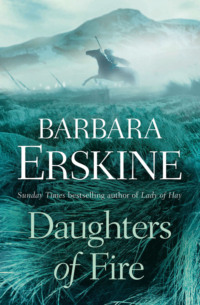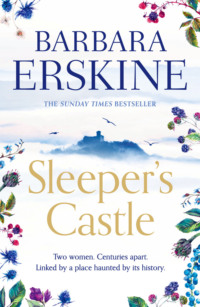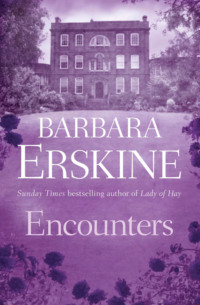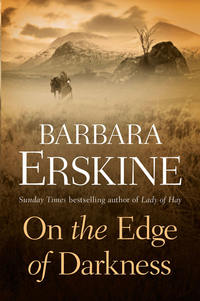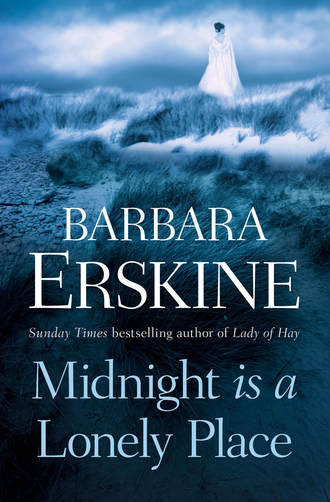
Полная версия
Midnight is a Lonely Place
‘Is there a woman in your life, Bill?’ She hadn’t meant it to come out quite so baldly as she sought for a change of subject, but he didn’t seem put out.
‘Only Aunty Beeb at the moment – the goddess I work for. There was one once, but she buggered off too.’ He paused reflectively, taking another deep drink from his glass. ‘You are not offering, I take it. Flattered and tempted though I would be by such a possibility, I think it would be bad for both of us.’
‘I’m not offering. But I need a friend. Someone who will walk through the woods now and then and drag me to a pub for a curry.’
‘Done. But not alas for a while after today. I’ve got a tight schedule until Christmas.’
She was astonished at how devastated she felt at his words. She had known he was going back to London and yet somehow she had counted on him being there again next weekend.
‘Want another Scotch?’ He had been watching her face closely and saw something of the loneliness which had shown in her eyes for a moment.
She nodded and held out her glass. ‘Then we can drink to Lord Byron. By the time I see you again, he will be, with a lot of luck, several chapters long.’
After dropping Bill at Colchester station she took the opportunity to drive on into the town, curious about the place which would be her nearest large centre for the next few months. Pevsner, in the edition of the book she had briefly consulted in the London Library, had waxed lyrical about it, but nineteen-sixties red-brick shopping centres now seemed to vie with nineteen-eighties glass and concrete where much of what he had described must have been. Saddened, she turned her attention at last to the castle museum.
The huge squat building was shadowed already from the late afternoon sun as she made her way across the bridge and inside the great door to buy her ticket. The place was strangely empty. In the distance she could hear the disembodied, dramatic voice of a video loop – the sound effects and urgency of the narrative strangely out of place amongst the glass cases beneath the high-beamed roof of the castle. She walked slowly around the ground floor exhibits gazing at Bronze Age and Iron Age artefacts, gradually growing closer to the sound.
For several minutes she stood watching the video – which told of the Romans in Colchester – then turning away, she began slowly to climb the stairs. At the top were Roman exhibits, life-size models, colourful, larger than life panoramic pictures on the walls, and then another video enactment, this time of Boudicca’s attack and the sack of the town.
Poor Boudicca. Kate wandered round slowly studying the exhibits, piecing together her life: the wife of Prasutagus; her children; the political background of first-century Britain; her husband’s death; the rape of her daughters and her humiliation as she was flogged by a Roman – the final insult after years of unrest and dissatisfaction in a country under foreign occupation, which caused the revolt which had nearly ended the Roman occupation of Britain. What a story her life made. Suddenly Kate found herself watching the video with heightened excitement. What a biography it would make; what a book, when George Byron was finished … The burning of Colchester, the rampage of Boudicca’s forces across Essex and Hertfordshire as they made their way towards London, and the final hours when she realised that all had failed and she took her own life. And Colchester was the centre of it all – a city where the flames had burned so hot that nearly two thousand years later a layer of blackened death was still clearly visible in the foundations of the town.
She watched the video through twice, alone in the darkened booth – seeing the huge sketched shapes of the warriors, hearing their shouts and screams, then she stood up and left, intensely aware suddenly of the vaults far beneath the castle which were all that remained apparently of the Temple of Claudius – the temple Boudicca had burned to the ground with most of the population of the town inside it.
She recognised this feeling: the tight, bone-tingling, breathless excitement as ideas jostled in her head, and under her breath she swore. She had had this feeling before, after she finished Jane; not until she had finished Jane. To get it now, while she was still at the beginning of Lord of Darkness meant she was going to suffer months if not years of suppressed, hidden frustration and worry in case someone else had the idea first; in case her publisher didn’t like the idea; in case the idea took root in her sleep and developed and began to encroach on the work in progress.
Shaking her head in a small gesture of irritation she moved on past the exhibits. How could a woman – any woman – however hurt and humiliated, order the slaughter of other women, of children, of babies? What kind of person was she, this remote queen who offered human sacrifice to her gods before going to war?
She stopped abruptly. She was standing in front of a statue of a Roman citizen and her eye had been caught by the name. Frowning, she read the inscription: ‘MARCUS SEVERUS SECUNDUS, one of the very few recorded survivors of the Boudiccan massacre. Instrumental in the rebuilding of Colchester after its sack in A.D. 60, he died full of years and honour and was buried next to his wife Augusta in the year A.D. 72. Their graves were excavated in 1986. See exhibit in case 14.’
So this was Redall’s former owner. She stared hard at the stone face of Marcus with his patrician nose, slightly chipped, his warrior stance, the carefully sculpted folds of his toga and she wondered what kind of a man he had been. He had been one of those who had survived the massacre and returned to pick up the threads of his life. She felt another sudden frisson of excitement. Had he seen Boudicca? Could he have described the warrior queen of the Iceni with her flowing red hair and her massy torcs, her body armour and her war chariot?
She jumped suddenly as a disembodied voice, echoing around the castle, announced that the museum would soon be closing and she gave Marcus a last regretful glance. But not too regretful. She had the feeling she would be coming back to see him again.
IX
The youngest son of the late King, he had stood head and shoulders above his brothers and he knew he had been the favourite. His love of learning, his memory, his wit had marked him out as a child for study and initiation. His priesthood gave him power. His royal blood marked him for destiny. That was why he had been given lands and authority, and why he was trusted as advisor at Camelodunum to the Roman settlers, even though his brothers led revolt in the west. He wore Roman clothes; he spoke their language; he assimilated their learning and their ways. And he had fallen in love with one of their women. But he hated them and he bided his time.
He frowned when he saw the detested overlords raising their temple in the heart of Camelodunum: a temple to Claudius; a temple to a man who had declared himself a god. But he kept his views silent. One day the time would come, one day the Romans would be expelled from the land of his ancestors. When that day came, he would kill Claudia’s husband and he would take her back to his hall. But until then, ever the diplomat, he would smile.
His duties as druid were light. He was royal, rich, in love. The gods would understand. He would serve them in due time when the bluebells had faded and the blood ran more slowly in his veins.
The old priests disapproved. They frowned and shook their heads first at him, then at the signs from the gods; the gods who despised the Romans who would venerate a man and make him one of them.
He did not know that the gods, too, were growing angry.
It was almost dark as Kate drove down the track and into the barn and parked her car next to Diana’s Volvo once more. The farmhouse, she had noticed at once and with a strange sense of loss, was in complete darkness. She had not realised until that moment how much she had been counting on being asked in to sit by their cosy fire and have a cup of tea before she set out on the walk through the wood to her cottage.
On the drive back she had found a farm shop open where she had managed to buy some bread and milk, crumbly local cheese and Essex honey and, to her great delight, some firelighters and matches.
Hefting her plastic carrier over her shoulder she was already on the track when she stopped. The torch was still in the car. Turning back she pulled open the barn door once more and, unlocking the Peugeot she rummaged in the glove compartment. The torch was there, and – experimentally she flashed it up into the high rafters – it worked. Comforted, she locked up again and set off at a determined pace into the woods.
The track ran straight for a few hundred yards and then curved eastwards, narrowing until there was only room for the rutted marks of the Land Rover’s wheels. Her feet slipped and she found she needed the torch to see where to put them in the mud. The evening was very still. There was no wind and the trees were silent. In the distance she heard the warbling call of a curlew from the marshes. The sound echoed in the falling darkness and was answered by the shriek of an owl. She clutched her bag more tightly, her eyes riveted to the track.
May the gods of all eternity curse you, Marcus Severus Secundus, and bring your putrid body and your rotten soul to judgement for what you have done here this day …
The woods were still silent, the trees unmoving. The words, as clear and well enunciated as those of a BBC presenter, had been inside her own head. Kate stopped dead, a sheen of sweat on her skin, her heart hammering in her ears. She stared round, her eyes straining into the darkness between the tall tree trunks, very conscious of the smell of rotting wood and damp, dark earth which surrounded her.
Stupid. The darkness and the silence after the celluloid drama of the museum and the excitement of the new idea had set her imagination working overtime, that was all. She resumed walking, a little more quickly this time, her torch clutched so tightly in her hand that her fingers grew numb.
When the cottage at last came into view she was breathless. Fumbling in her pocket for her key she let herself in and turned on the light, then she put her shopping bag down on the kitchen table, ran upstairs and grabbed one of her empty boxes from the spare bedroom. Dragging it after her she went straight outside again and made for the log shed. Before she did anything else and before she lost her nerve completely she would stock up with firewood.
Flashing the torch beam around the small shed she piled logs into her box, and then a huge heap of kindling. The shed was very neat, the ranks of logs undisturbed beneath their net of spiders’ webs save for a few that had fallen at the end of the pile, the spade still leaning where she had left it in the corner. With one last look round she turned off the torch and returned it to her pocket. She needed both hands for the box. Hefting it up with a groan she made her way out into the cold garden, conscious of the brooding woods so close to the front of the cottage. It was impossible to run with the box. As swiftly as she could she walked back indoors and then she dropped it on the hall floor. Turning she slammed the door shut and shot the bolt home.
Safe. She closed her eyes and laughed quietly to herself, embarrassed, alone as she was, by her own stupidity. Picking up the box again she hauled it into the living room and put it neatly by the stove. Then, drawing the curtains against the darkness she went back to the kitchen and put on the kettle. The phone rang as she was waiting for it to boil.
‘Kate, my dear. Just checking to see that everything is all right.’ It was Roger Lindsey. ‘I’m afraid we’ve been out most of the day so I thought I would give you a quick call to make sure you have everything you need.’
‘Thank you. I’m fine.’ She took a deep breath, astonished at how pleased she was to hear the sound of his voice. ‘I came by earlier to leave my car again so I saw you were out.’
‘We were having lunch with some friends in Woodbridge. Nice people. They had read your book.’
‘Nice people indeed.’ She smiled wryly. ‘Roger, tell me, how do I make this woodburner thing stay alight all night?’
She heard an exclamation of impatience. ‘Didn’t Greg show you? I’m sorry, my dear. Those things take a bit of getting used to, but once you’ve got the hang of it you can keep it going for months without it going out. Do you want me to come up and show you?’
She shouldn’t drag him over when he was ill, when he had been out all day and must be tired, but suddenly the thought of a visitor was very tempting. ‘Would it be an awful imposition? I’ve got a good whisky here.’
She heard him laugh. ‘I’m on my way.’
It was scarcely fifteen minutes later that she saw the headlights of the Land Rover appear from the trees. Roger climbed out. ‘Greg’s away for a day or two. I’ll give him a good bollocking when he gets back. He was supposed to show you how everything works.’
‘He must have forgotten. I had so much stuff to bring in.’ She closed the door behind him and led the way into the living room. She had put the whisky bottle on the table with two glasses. She poured, then she watched as he knelt before the stove and pulled the doors open. ‘Start with a good blaze, like this,’ he instructed. Magically a fire appeared beneath his thin hands. ‘Then put on one or two of the logs. Like so.’ He pushed two huge logs into the small cavity and miraculously they fitted. Then he closed the doors. ‘Now, leave it for a while with the dampers open like this. Once the fire has caught properly – about two-thirds of the way down that glass, I should say – we close them tight. The secret is to get it burning slowly and steadily and then to cut off as much air as possible. You have to stack the logs in really tight last thing – that’s an art you must practise I’m afraid, but you’ll soon get the hang of it. It keeps this place really snug once it’s working properly.’
He took the glass she offered him and sat down in one of the armchairs, gazing round the room. ‘You’ve made it look very comfortable.’
The tall, thin man sprawling in the chair in his shabby cords and old tweed jacket was so reassuring and normal that Kate found the wave of nervous loneliness which had hit her earlier was receding fast. ‘I gather your son used to live here. I’m sorry my coming here has upset him,’ she said as she sat down opposite him.
‘He’s no business to be upset.’ For a moment a shadow passed across Roger’s face. ‘He knows we need the money. Sorry if that sounds crude, but it’s a fact of life. And it’s nice for us to have a congenial neighbour.’ He smiled comfortably. ‘As you’ve gathered, it’s fairly isolated up here. And to that end, Diana has instructed me to ask if you would like to come and have some supper with us on Wednesday. We quite understand if you’d rather not because you are working, but –’
‘I should love to.’ She replied so quickly she surprised even herself. ‘I shall look forward to it immensely.’
‘Good.’ His smile was expansive, deepening the network of wrinkles around his eyes. ‘You’ll have the pleasure or otherwise of meeting our other two children, Allie and Patrick.’ Draining his glass he stood up. ‘If there’s nothing else I suppose I’d better go home. Di will have supper ready soon.’
Stay, she wanted to say. Please, stay and talk to me. She liked his presence in the room. It was comforting. Solid. And safe. She said nothing. Smiling, she showed him to the door. ‘I’ll report back on my success or otherwise with the stove when I see you.’
‘Do that.’
She watched as the Land Rover backed round and headed back up the track, the headlights bucking against the trees as it slid between the ruts. In a moment it was out of sight.
Closing the door and bolting it again she walked back into the living room. As though recognising the hand of a master the woodburner had settled down to produce a satisfyingly hot glow which was already warming the room. She looked round, pleased. Although Roger had gone something of the friendliness he had brought with him had remained; basking in it, she would make herself some supper, read a little, listen to some music, have a hot bath and go to bed early. Tomorrow she would spend the day with Lord Byron.
X
In the stillness of the night the tide lapped imperceptibly higher along the beach, round the headland and slowly, oh so slowly, into the backwaters of the estuary, licking at the mud, floating strands of trailing grasses and weeds, curling round the toes of sleeping geese and ducks. Rising.
In the dune the sand had dried. It was brittle, friable, ready to fall. Beneath it, only a centimetre down now, was the clay – clay which was plastic, impervious to air or water, and in the clay was the peat which held preserved the remains of four human bodies.
XI
She had been sitting at the word processor for two hours and she had not noticed that it was getting light. Now, arms and shoulders cramped and her head throbbing from her intense concentration, Kate sat back, took off her glasses and, dropping them beside her notes, stared out of the window. The mist had receded to leave a sunrise of breathtaking clarity. The narrow vee of sea visible between the shingle banks from her carefully positioned table glittered with blinding beauty. It was more than anyone could resist; besides, she needed a break. Donning jacket, scarf and boots she pulled open the front door and emerged into an ice cold wind. Looking around she took a deep breath of pure delight. This was a place where Byron himself would have felt at home.
Roll on, thou deep and dark blue Ocean – roll!
Ten thousand fleets sweep over thee in vain …
The beach was still wet from the receding tide as she tramped northwards along it, murmuring the lines from ‘Childe Harold’, her head ducked against the sting of the wind and the glare, her cheeks tingling beneath the whipping strings of hair as they pulled free of her scarf. The words weren’t quite right, of course. This wasn’t an ocean and it was neither all that deep nor dark, but still the mood was right. It was exhilarating. She wanted to jump and run and dance, but the shingle and soft sand precluded all but the most undignified gallop. Stopping at last, exhausted, she turned and began to retrace her steps. With the wind and glare behind her she could slow down and appreciate the different colours and textures of the water: where the sand rose near the surface it was pale green, even yellow. Further out streaks of deep turquoise melded with grey and black and the intense sapphire blue of a child’s painting of the sea. In the distance the shingle gave way to muddy sand and she could see dunlin and redshank at the water’s edge. Save for them she appeared to be the only being alive in the world.
She came level with the cottage, appreciating from here how sheltered it was behind the shingle banks, only a narrow section of its face visible behind the waving grasses and heaps of sand. In front of her, beyond the dunes, the beach swept away around the corner. There a narrow inlet led into the shallow, muddy waters of Redall Bay with its network of small islands and tidal creeks.
By the last of the dunes she stopped. Part of it appeared to have fallen onto the sand, and in the hollow on its seaward side there were signs of recent digging. Curious, she walked towards it, her boots slipping in the deep soft mixture of stones and mud and sand. The top section, out of sight of the cottage, had had a neat transverse slice removed from it. About ten feet long and two feet deep the interlocking grasses had been sectioned away and below it the sand had been scooped loosely into piles. Jumping down into the hollow she stared at the exposed wall of the dune. The resulting scar in the sand looked too regular and neat to be the result of a child’s game; and it had certainly not been caused by the tide, although further along the cut had been lengthened and randomly enlarged by a muddy landslip where tell-tale strands of weed and a scattering of whelk shells betrayed a recent high tide propelled by an easterly wind.
Intrigued, Kate ran her hand lightly over the sand face. Who had been digging here, and why? Was it something to do with sea defences? She turned and looked back at the beach. The receding tide looked gentle and benevolent now, but she was under no illusions about the force it could muster if wind and moon were right.
She was about to scramble out of the hollow to resume her walk when her eye was caught by something shiny sticking out of the sand. It looked like a piece of pottery. She picked it up and examined it, then, frowning, she looked at it more closely. It was thin, fine, red, decorated with a raised pattern and it looked very like the Samian ware she had seen in the museum only yesterday. But that was impossible. She turned and surveyed the sand face again. Was this some sort of abandoned excavation? She stared down at the piece of pottery in her hand almost guiltily. Perhaps she shouldn’t have touched it. On the other hand it had been lying in the loose spoil, obviously overlooked. With another high tide it would have been buried and lost. Pulling her scarf off her hair she wrapped the piece carefully and put it reverently in her pocket, then she turned and examined the exposed sand again. It was in a very crumbly state. The lightest touch dislodged another shower of soil. A few feet to her left she spotted something dark protruding from it. Cautiously she touched it. Metal. Scraping at the sand with her fingers she tried to see what it was without disturbing it. The narrow twisted neck of metal stuck out at right angles from the sand. She must ask the Lindseys. They would know who had been excavating here, and why they had stopped. She eyed the piece of metal longingly. If she touched it and it was of archaeological interest then she might be destroying valuable evidence – on the other hand another tide might remove it even more irrevocably. As she was standing there, trying to make up her mind what to do, a small crack appeared of its own accord in the top of the dune. As she watched a lump of wet sand broke away and fell at her feet. A minute later another six-inch section fell, taking the metal object with it. She bent and picked it up. Twisted, corroded, the metal was heavy and cold in her hand. She could not begin to guess what metal it was. Not gold certainly. Bronze, perhaps, or even silver. She examined it in excitement and awe. In all probability she was the first person to touch it for over a thousand years – perhaps two, perhaps more. It was a torc.
MY LOVE
The voice in her head had spoken so loudly she thought it was real. Dropping the torc she put her hands to her ears, looking round.
There was no one there. An oystercatcher was plodding slowly along the tide line near her, dipping its beak into the sand.
She could feel her heart beginning to hammer in her ears again, as it had in the woods in the dark the night before. Taking a deep breath she bent and picked up the piece of twisted metal, then she scrambled out of the hollow. She stared round, her arm across her eyes to hold back her streaming hair, loose now she had removed the scarf. There was still no one in any direction as far as she could see. Besides the voice had been inside her own head.
Taking a deep breath she turned towards the cottage. Get a grip on yourself, Kennedy. You’re imagining things, she told herself sternly. Too much fresh air, that’s your trouble.
The panic had gone almost as soon as it had come. Out here in broad daylight, in the brilliant sunshine and the light, tossing wind with birds patrolling unconcerned along the tide line, her moment of terror seemed absurd. It was imagination, that was all. A visit to the museum, a new preoccupation with Boudicca and the events of nineteen hundred years ago, together with the isolated situation and already she was having hallucinations. Strong coffee would soon sort that out.




